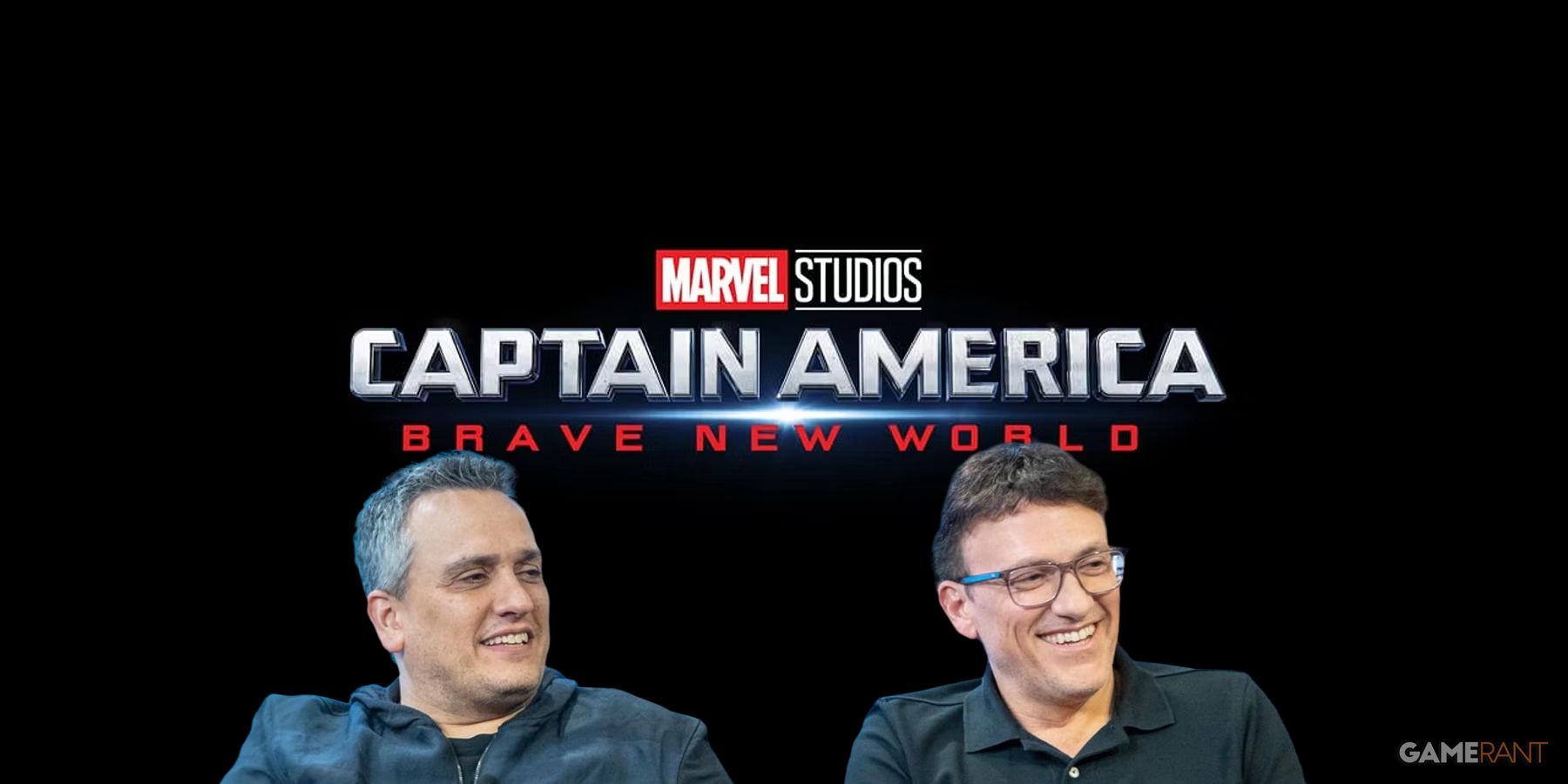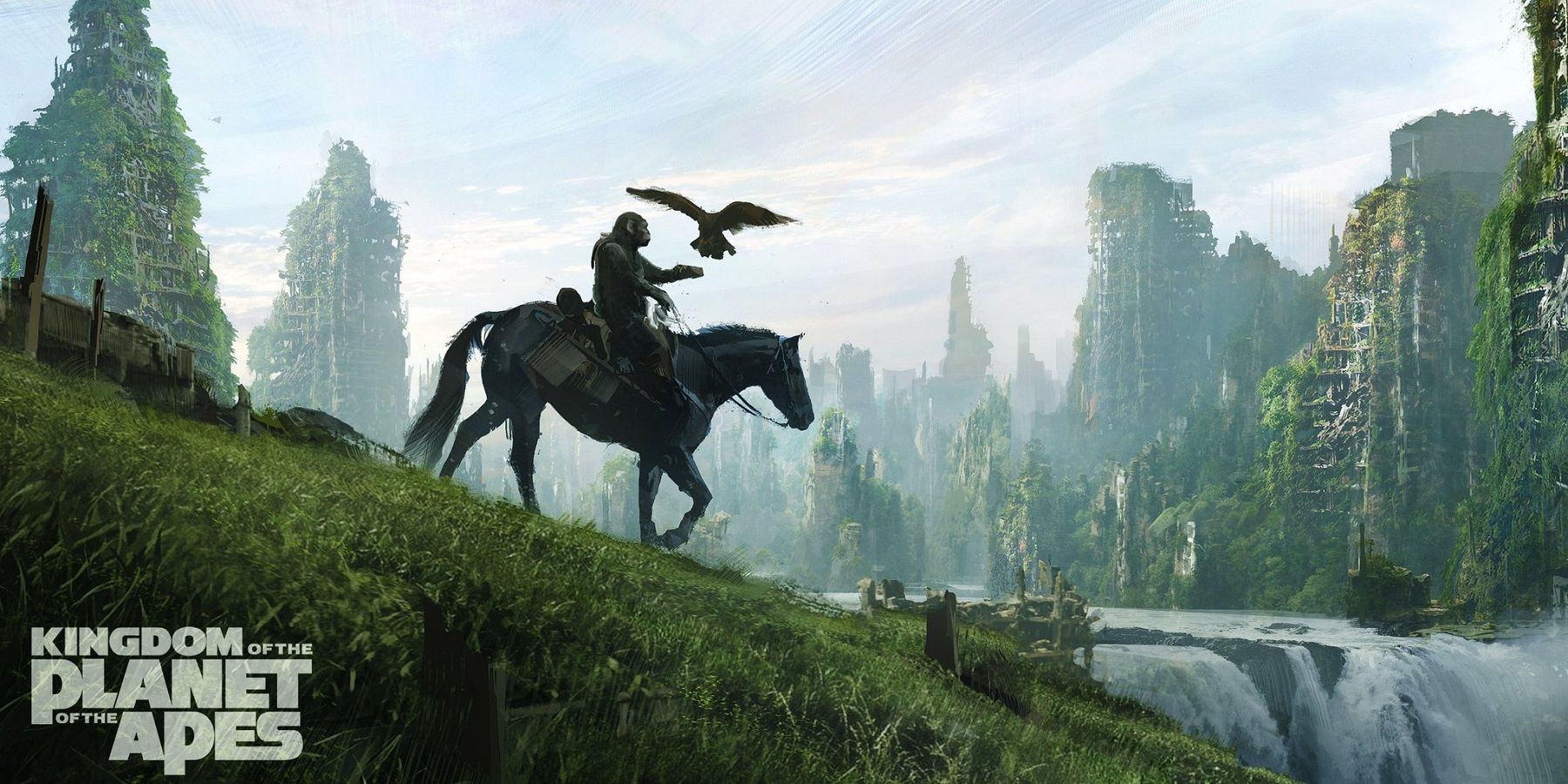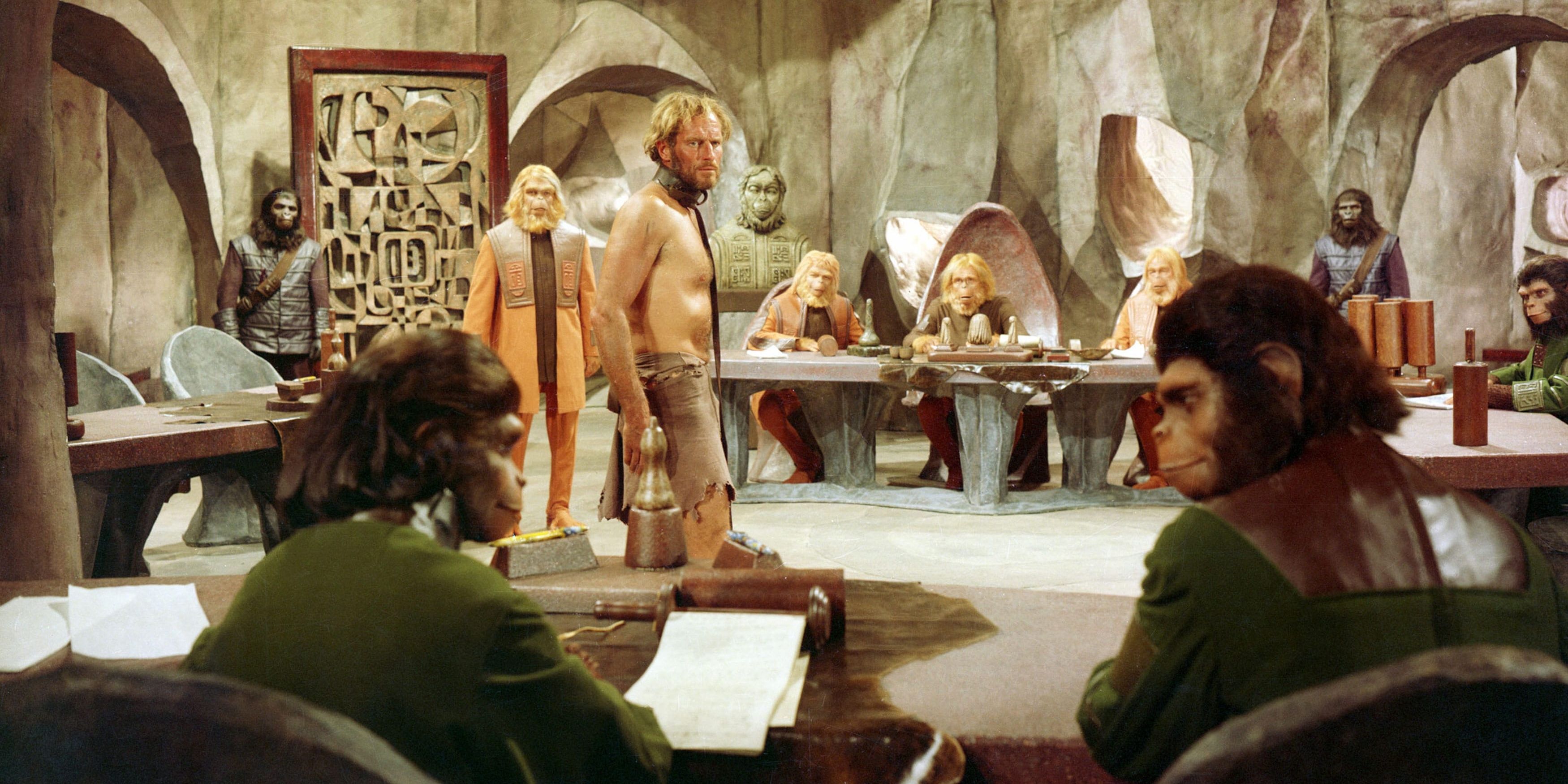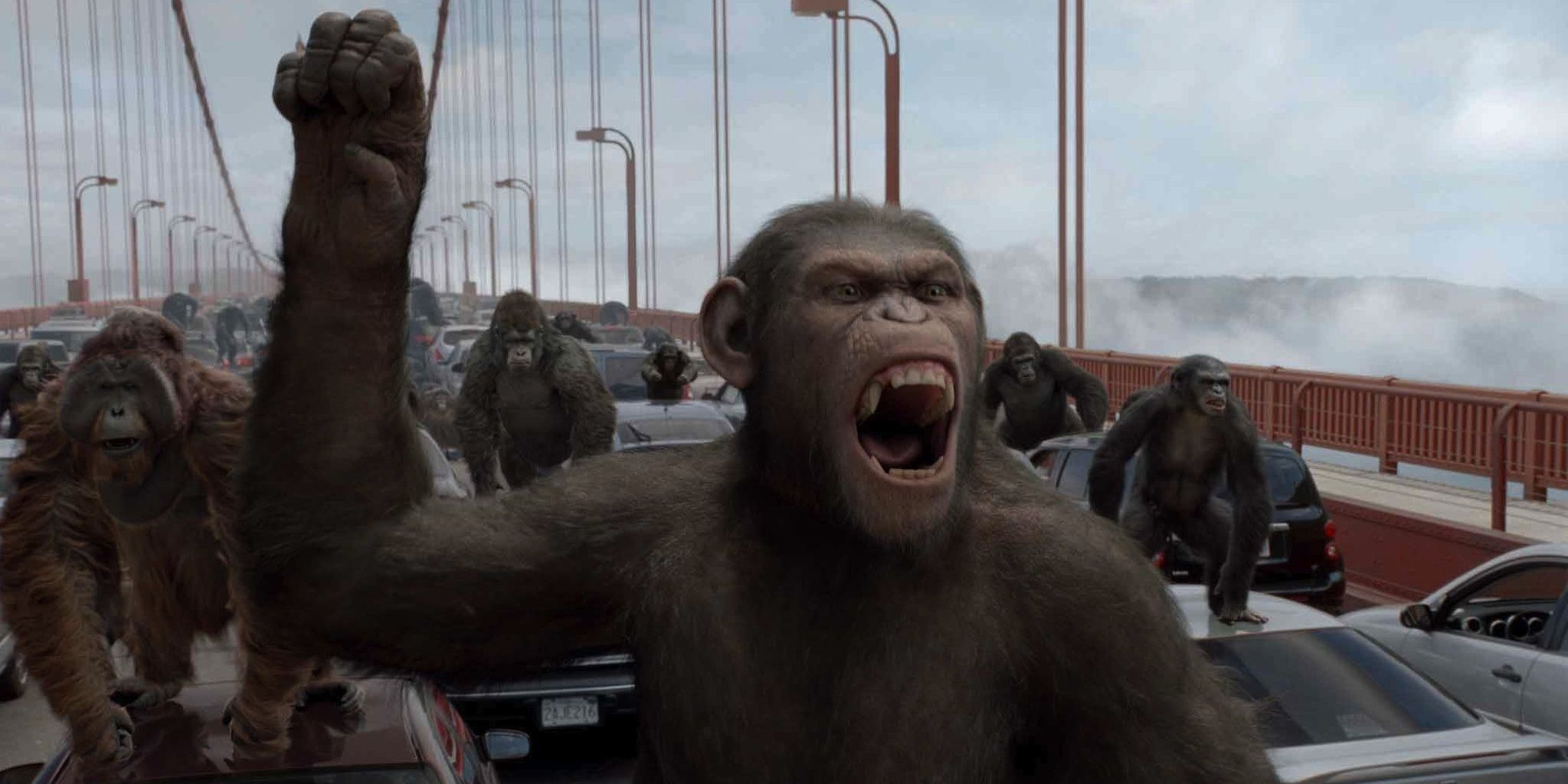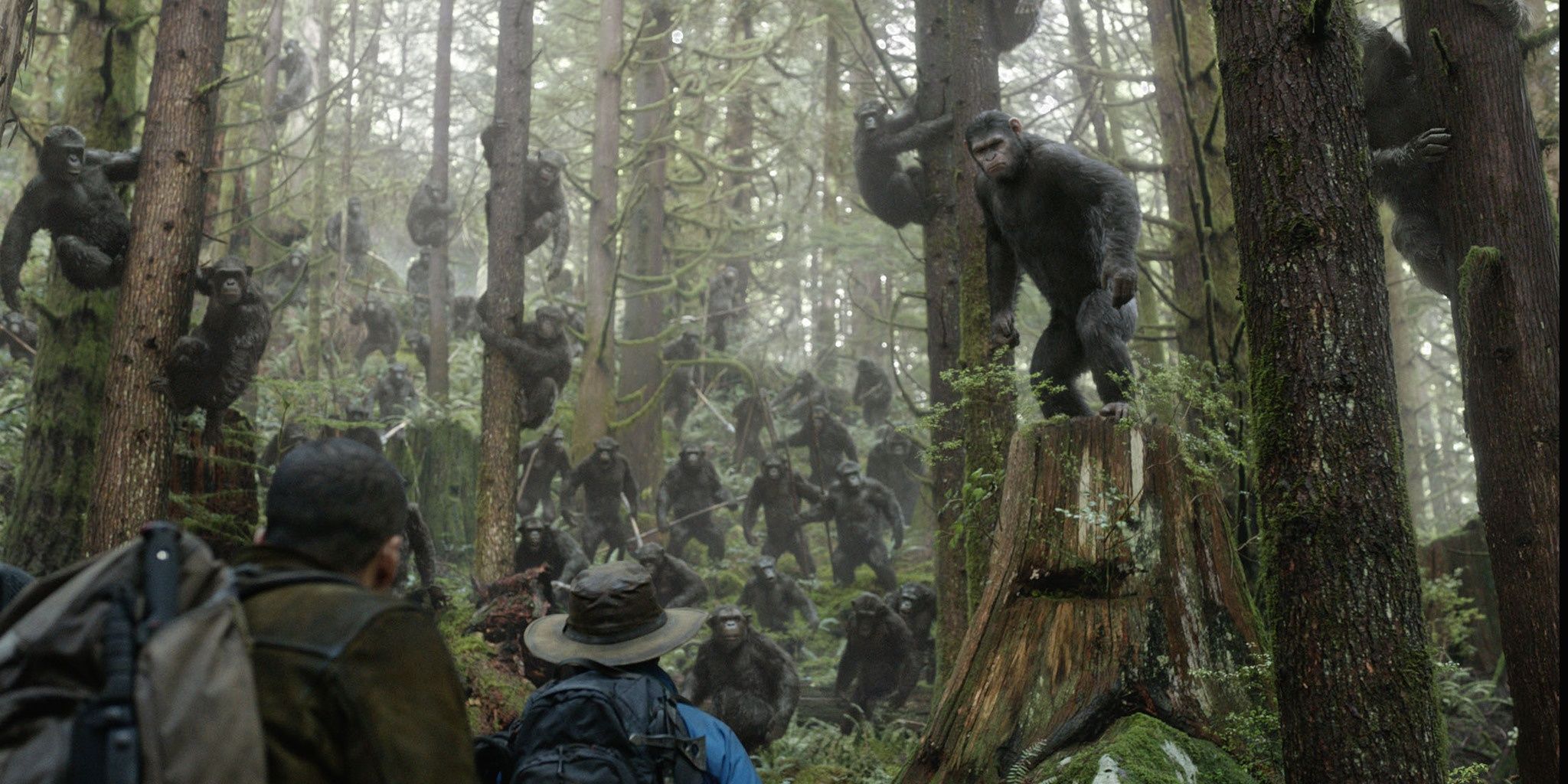Highlights
- Kingdom of the Planet of the Apes will be the fourth installment in the recent Apes trilogy, known for its stunning artistic renditions and exploration of melancholic themes.
- The film takes place generations after War for the Planet of the Apes, with new ape clans emerging and humans regressing into a feral state. A young chimp named Noa and a woman named Mae aim to prevent an ape leader from enslaving other clans and search for secret human technology.
- Director Wes Ball aims to blow people's minds with this next iteration of the series, consulting with Andy Serkis, whose performance was crucial to the success of the previous films. The challenge is to integrate the proper elements from the past films into an original take for this timeless series.
Since the first Planet of the Apes, there has been a litany of stories to come out of the Apes universe including eight films, numerous books, graphic novels, and video games. The latest installment in the cinematic franchise will be Kingdom of the Planet of the Apes, a continuation of the recent trilogy produced by 20th Century Fox (now called 20th Century Studios its acquisition by Disney).
The film will be the fourth entry in the series reboot which began with 2011's Rise of the Planet of the Apes, directed by Rupert Wyatt (Captive State) and starring the transcendent Andy Serkis as Caesar the Ape. It was a perfectly fine movie that was tremendously followed up by 2014's Dawn of the Planet of the Apes and 2017's War for the Planet of the Apes, both directed by Matt Reeves (The Batman). Unlike its predecessor, they were stunningly artistic renditions of the modern blockbuster and were not afraid to explore some truly melancholic themes. To compare them to the original series from the 60s/70s would be like comparing Reeves' take on Batman to that of Adam West. However, they still have a certain lo-fi appeal and are worth mentioning as part of the decades-spanning saga with Caesar and friends.
Title | Takes Place In |
Planet of the Apes (1968) | 1972/3978 |
Beneath the Planet of the Apes (1970) | 3978/3955 |
Escape from the Planet of the Apes (1971) | 1973 |
Conquest of the Planet of the Apes (1972) | 1991 |
Battle for the Planet of the Apes (1973) | 2001/2670 |
(Remake of the) Planet of the Apes (2001) | 2029/5021 |
Rise of the Planet of the Apes (2011) | "Near Future" |
Dawn of the Planet of the Apes (2014) | 10 Years Later |
War for the Planet of the Apes (2017) | 2 Years Later |
Kingdom of the Planet of the Apes (2024) | "Generations Later" |
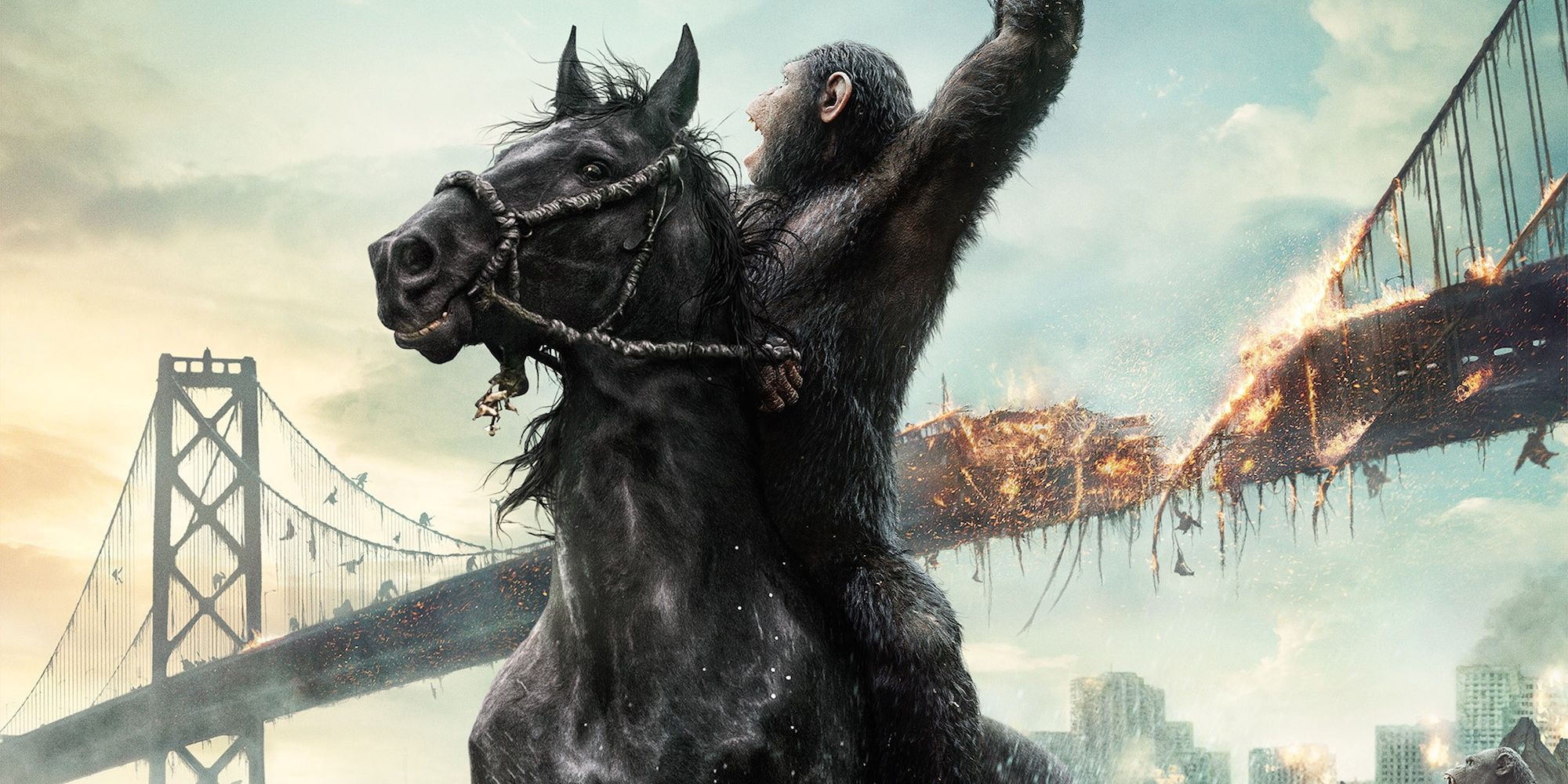
Dawn Of The Planet Of The Apes Is One Of The Best War Movies Ever Made
The second installment in Matt Reeves' Planet of the Apes trilogy is a great Sci-FI action film, but also a great war story.
The Pentalogy of the Apes
Planet of the Apes begins in 1972 with four astronauts emerging from their time-dilated hibernation during an intergalactic voyage to shockingly discover they have awakened in the year 3978, over 300 light-years away from home. Their starship has crashed on the Forbidden Zone, a planet inhabited by an advanced society of apes who have developed a theocracy; gorillas support the workforce, orangutans oversee the government, and chimpanzees serve as intellectuals (scientists, doctors, etc.). In this world, apes are the dominant species whereas humans are the primitive ones, either being hunted for sport or enslaved. Everything builds up to the twist of all twists when Heston comes across the remnants of the Statue of Liberty and learns that this apocalyptic wasteland is none other than Earth itself after humanity destroyed it with a nuclear war.
In Beneath the Planet of the Apes, a rescue ship is sent for the characters in the first film, and it crash-lands in the year 3955, with the lone survivor assuming that he has ended up on a different planet. However, it is indeed the same ape-abundant world from before and Heston leads a mission that results in the total annihilation of Earth as the film's final narration reads: "In one of the countless billions of galaxies in the universe lies a medium-sized star, and one of its satellites, a green and insignificant planet, is now dead." If the fact that humanity is always the villain was not made clear in Planet of the Apes, it is solidified in Beneath and even more so in future installments.
Escape from the Planet of the Apes is about two surviving apes who escape Earth moments before its destruction and enter a time warp back to 1973 where they are discriminated against and persecuted. Conquest of the Planet of the Apes features the introduction of Caesar and his rebellion against a totalitarian species to whom he ultimately shows mercy despite having the upper hand. In Battle for the Planet of the Apes, Caesar strives to maintain peace among the apes and their co-inhabitants in the oppressive humans, which predictably leads to conflict in an epic final battle.
The ‘Rise’ of the ‘Dawn’ of the ‘War’
Then came the reboot/prequel series which began with Rise of the Planet of the Apes which serves as origins of how the Planet of the Apes came to be from a contemporary perspective. Dr. Will Rodman (the flaccid James Franco) creates an experimental cure for Alzheimer's disease at a capitalistic biotech company called Gen-Sys that abusively tests their products on apes. When a suit from Gen-Sys named Jacobs (David Oyelowo) plans to put down some of their subjects, Will takes home a baby chimp who is named Caesar by his ailing father Charles (John Lithgow). Enter the titan that is Serkis, bringing tangible life to what could have easily been a laughable CGI disaster.
All Planet of the Apes movies are available to stream on Disney Plus
Of course, humankind ends up taking themselves down as Will's gaseous drug is stolen by Caesar who liberates his caged brothers and sisters while unknowingly causing a deadly pandemic called the Simian Flu that significantly decreases Earth's population, leaving only those who were genetically immune to the contagion. This is where Dawn of the Planet of the Apes picks up, in a world where Caesar and his family have developed a woodland community under the belief that humanity is no more as they have not been seen for the past two winters. When a group of survivors appears in their area to fix a dam that will restore their power, there is a divide between the apes; some are open to helping them so they can avoid conflict while some, namely Koba, believe they cannot be trusted given their cruel treatment of his kind. Under Koba's reign, the apes go to war.
The film's thrilling finale has Caesar dropping Koba to his death, but he is too late as a nearby militia has already been made aware of the situation by the survivors and is on their way to eliminate the apes. Despite the War for the Planet of the Apes having already begun (the second and third films really should switch titles), Woody Harrelson's Colonel arrives with his army which is being aided by several apes that have been derogatorily labeled "donkeys". His entry is brutal to say the least as he lays waste to the colony and kills Caesar's wife and eldest son Blue Eyes, under the impression that he has killed Caesar himself. The apes must now venture to an oasis that was found by Blue Eyes where they look to rebuild in the aftermath of their genocide.
While on the run, Caesar kills a paramilitary soldier and finds his mute young daughter. It is a surprise to see that anyone decided to have a child during such harrowing times and it turns out that doing so taught humanity a great deal about the effects of the pandemic. Caesar eventually confronts the Colonel for answers, who is bracing for an incoming military attack that will destroy the apes as well as him and his militia. The Colonel, knowing he has nothing to lose, tells Caesar that the Simian Flu has mutated and those who are infected will devolve into primitive animals, with one of the first signs being the loss of speech.
Everything culminates in the Colonel being exposed to the mute little girl and committing suicide when he becomes unable to speak. With the military encroaching on the apes with heavy fire, Caesar blows up a gas tank which causes an avalanche that wipes out the two military factions while the apes escape through the trees and into the post-apocalypse. However, as all great tragedies do, Caesar reaches the end of his story and looks on at his youngest son before calmly passing away just beyond the oasis. The human race may very well be borderline extinct after Caesar's heroic actions, yet the definitive answer will likely be addressed in Kingdom of the Planet of the Apes.
How the Apes Built Their 'Kingdom'
Taking place generations after War for the Planet of the Apes, Kingdom follows a young chimp named Noa who learns that new ape clans have emerged in the oasis while humans have regressed into a feral state. One of the ape leaders is named Proximus Caesar and he has maligned the teachings of Caesar so that his underlings will enslave other clans as they search for the last traces of a "secret human technology." To prevent this, Noa will ally with a young woman named Mae to find freedom and hopefully reimpose Caesar's true legacy.
Kingdom is directed by Wes Ball (The Maze Runner franchise) and written by screenwriting couple Rick Jaffa and Amanda Silver (Rise, Dawn, and Avatar 2) as 20th Century hopes to reclaim the visual and tonal success of its trilogy. Owen Teague will be performing the elaborate motion capture for Noa (the It franchise) and Freya Allan (TV's The Witcher) will be his animalistic companion on their epic journey through the remnants of civilization. Perhaps the most important fact to consider is the blessing given to the film by Serkis himself, who had this to say about it in a past interview with Cinemablend:
"I think Wes Ball is going to do an amazing job with this film. I think it’s, from what I’ve heard and what I’ve seen, there’s some amazing conceptual artwork. And where they’ve chosen to land the story and take off with the next iteration, I think it’s gonna blow people’s minds."
It is smart of the filmmakers to have consulted with Serkis while developing this new chapter of the Apes saga, for his performance was a major factor as to why those three films worked as well as they did. Ball is a competent action director but it remains to be seen how well he can tell a story since the Maze Runner films were not impressive at all from a narrative standpoint. The pieces are in place to have a worthy successor in this long line of monkey movies, now it is all about whether Ball and crew can take the proper elements from everything that came before them and integrate them into an original take for this timeless series.

